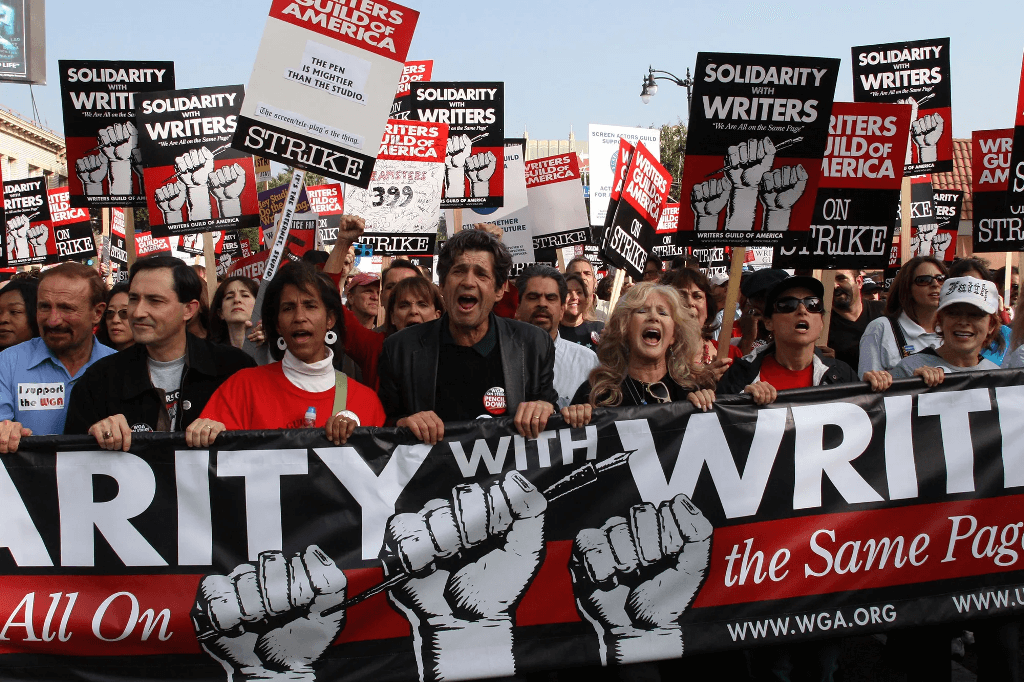Hollywood’s ongoing strikes by the Writers Guild of America (WGA) and the Screen Actors Guild-American Federation of Television and Radio Artists (SAG-AFTRA) have brought the entertainment industry to a standstill. As the strikes, which began in July 2024, extend into their second month, the impact on movie and TV production schedules has been profound.
Key TV shows such as “Chicago Med,” “NCIS,” and “The Simpsons” have paused production, while anticipated film releases like “Dune: Part II” and “Killers of the Flower Moon” face delays. The strikes have disrupted not only current productions but also the promotional activities necessary for upcoming releases, leading to empty red carpets at premieres and postponed release dates.
The core issues driving the strikes include demands for better pay, improved working conditions, and protections against the unregulated use of artificial intelligence (AI) in the industry. The strikes have highlighted significant economic implications, with thousands of industry workers out of jobs and major studios like Disney and Warner Bros. facing substantial financial losses.
There is growing concern that the strikes could extend into early 2024, potentially making them the longest in Hollywood history. This prolonged disruption is likely to push back the release schedule for many 2024 films and TV shows, with experts predicting a ripple effect that could last well into the next year.
The ongoing strikes underscore the industry’s deep-seated challenges and the critical need for fair negotiations to ensure sustainable working conditions for all involved.






2 Comments